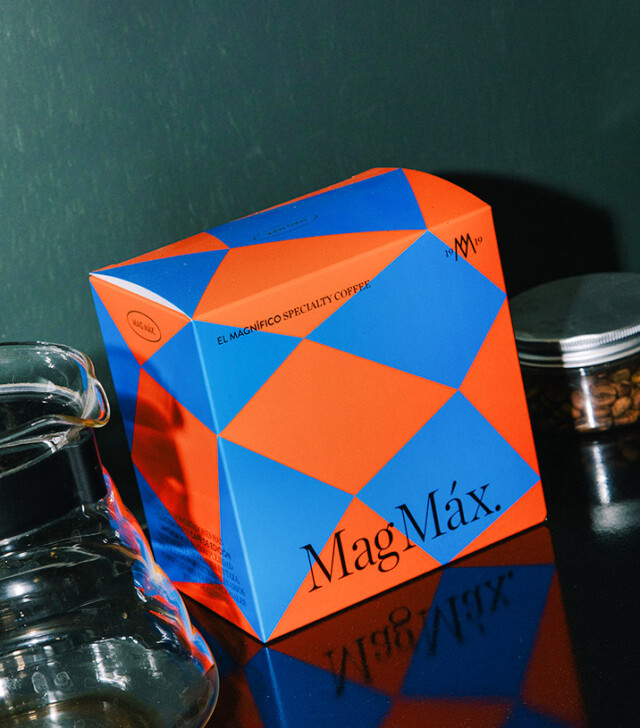Colombia Pink Ballerina
Every year, around this time of year, we select exceptional small batches produced by outstanding coffee growers.
This 2025 selection includes SL28, Pink Bourbon, Geisha, and Bourbon Honey varieties.
The Farm
Wilton’s passion for coffee cultivation began in his youth when he embarked on the world of processing and growing. Over time, his interest in technology grew, leading him to realize the potential of integrating new technology into coffee farming. The convergence of these two passions has allowed him to produce some of the most innovative coffees in the industry.
His farm, located in the Cauca region (southern Colombia), El Paraíso 92 serves as the nerve center for his other two farms, producing more than 20 varieties of coffee using cutting-edge methods. The farm has a microbiology laboratory, a quality control laboratory, and a processing plant. The meticulous processes applied to the various coffees begin with: rigorous cherry selection, sterilization, and characterization of the cherries; followed by the initial phase of anaerobic fermentation. It is worth noting that the number 92 refers to the 92 families hired each year for the harvest on his farms. At Cafés el Magnífico, we were fortunate enough to select the two lots we will roast with Wilton Benítez himself. A table of 14 coffees, each with extraordinary flavor characteristics, made choosing just two quite difficult. We, as tasters, were also struck by the elegance of each process he applied to the different varieties in the cup.
Pink Bourbon Variety
Pink Bourbon gets its name from the fact that its ripe cherries are pink instead of red. Its appearance dates back 20 years to the municipality of Acevedo, Huila, Colombia, and since then it has been a favorite among producers and consumers.
The origin of this variety has been the subject of several theories. Initially, it was said that its appearance in coffee plantations was due to cross-pollination between red and yellow Bourbon varieties, but later studies showed that this exotic and unique bean may have a direct Ethiopian lineage, without any derivation from Bourbon-Typica.
Regarding its cultivation characteristics, it has better resistance to coffee rust than Red Bourbon. Pink Bourbon typically has spicy notes of jasmine and a touch of caramel. The main added challenge is harvesting ripe cherries, unlike with red Bourbon, which obviously makes determining the ripe color much easier for pickers.
Process Method
The processes applied to all coffees begin with a careful and rigorous selection, sterilization, and profiling of the coffee cherries. This is followed by the first phase of controlled anaerobic fermentation, adding a specific microorganism for each process. The coffee is then pulped and undergoes a second fermentation phase. Once the second fermentation phase is complete, a thermal shock process is performed using alternating hot and cold water to enhance and intensify the coffee’s organoleptic characteristics.
In short, this fermentation could be described as anaerobic lactic fermentation with a thermal shock wash (cold and warm water).
The farm has a temperate, humid microclimate that is significantly influenced by easterly Pacific winds, creating regular temperature variations. Due to the high altitude (between 1700 and 1900 meters above sea level), the beans ripen slowly, allowing more time to generate sugars that are essential for fermentation.
Origin
According to the boundaries established in the application for Protected Designation of Origin (PDO) recognition for Cauca Coffee, coffee under this geographical indication is produced in 29 municipalities, at an average altitude of 1,758 meters above sea level, though this can extend up to 2,100 meters above sea level. The region has a rainy season and homogeneous volcanic soils.
Perhaps the only climatic characteristic that is subject to greater variability in this region, compared to any other coffee-growing region in Colombia, is the daily temperature range: it fluctuates between 11°C and 18°C.
These temperature variations between day and night are essential to understanding the quality of Cauca Coffee. The low nighttime temperatures, associated with relatively high altitudes, slow the ripening process of the coffee bean, resulting in higher levels of acidity and very distinctive sweet notes.
28 € – 112 €
This item will be available at a future date. Free shipping from €40 purchase

